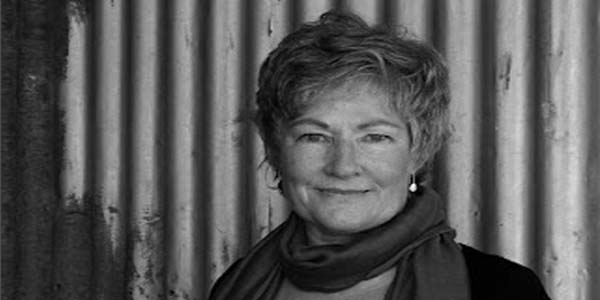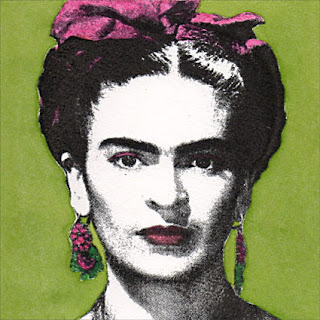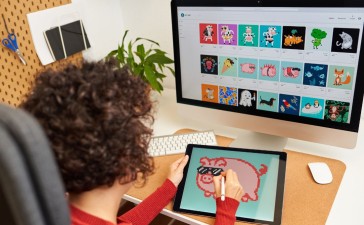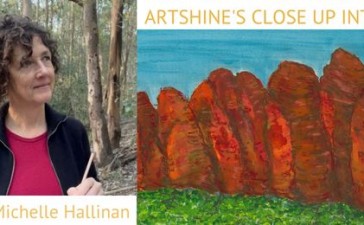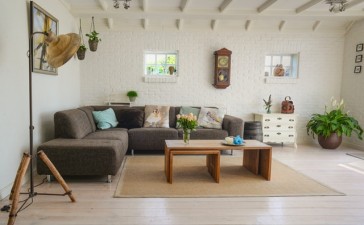Tell us a little about yourself and what you do.
As a visual artist I love to work with a range of media, including printmaking, painting, photography and installation. I am particularly passionate about printmaking and am pursuing photo etching; using more than one plate for each etching. With painting I have often enlarged small works many times over, giving a new perspective to the subject. With one work, called “Homage to Van Gogh” , I took a tiny section of Van Gogh’s ‘Irises’ and enlarged it up to 2 metres x 2 metres, which I painted onto a grid of 25 canvases. Compared with the large paintings, the new photo etching works are on a very small scale, being no more than 100 mm in either height or width. I am working on a series using raven imagery for a joint show I have opening in August in the Briagolong Art Gallery in Gippsland, Victoria, Australia.
Who (or what) inspires you to do what you love in your own creative business?
All artists who follow their heart are inspirational. I am inspired by people who keep moving forward with their art or design work and people who challenge themselves to come up with something totally new.
Where do you get your inspiration from when you design and paint?
What are the five words that people who know you would use to describe you?
Creative. Resourceful. Amusing. Encouraging. Playful.
How did you know when you have found your passion for Art & Design?
Tell us about your very first job and what path have you taken since then?
Describe your day in your studio space?
As an Artist, what is your biggest frustration?
Tell us about how you prioritise your work.
Can you please tell us about how do you connect with other artists, and your customers (i.e. how do you network)?
Many of my friends are artists, which means we never run out of conversation. Other friends who may not be artists are very supportive, and some have traveled three hours to an opening of mine. I am involved with a network of artists from my time at Redbox Studios in Collingwood, and at the Rose Street Artists’ Market. There is also a large group of artists living locally.
What advice can you offer other creative people who are just starting out and following their passions?
It IS worth it! Even if it isn’t as financially rewarding as you would like it to be, while you are physically involved in making work that has meaning for you, you will feel fulfilled. It’s only when you stop working and thoughts creep into your consciousness that you feel any lack of abundance. Also, find a tribe of like-minded artistic individuals. You wont have to look far, as once you acknowledge that you are an artistic, the tribe will appear.
“Flamenca Roja”
Linocut and collograph
What dreams do you still want to achieve or fulfil in your life?
Hmm … London, Paris, New York, Venezia. Would be very nice to have my work exhibited in these cities. Also want to take up some residencies in other countries.

